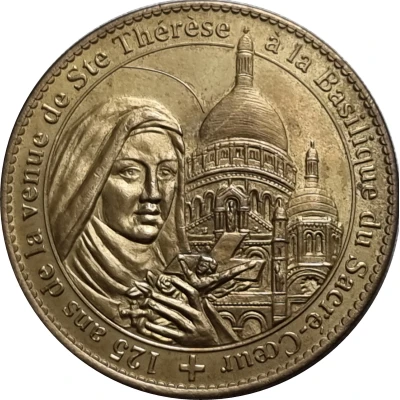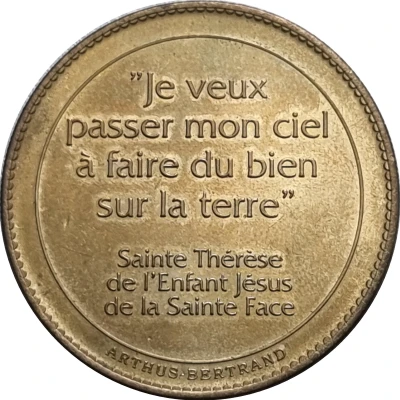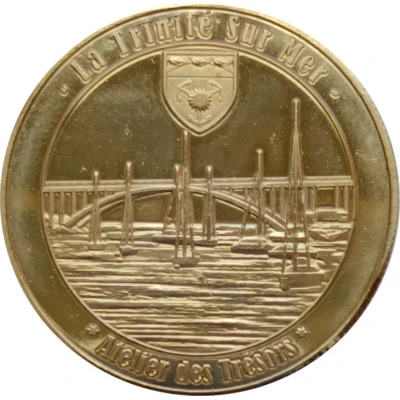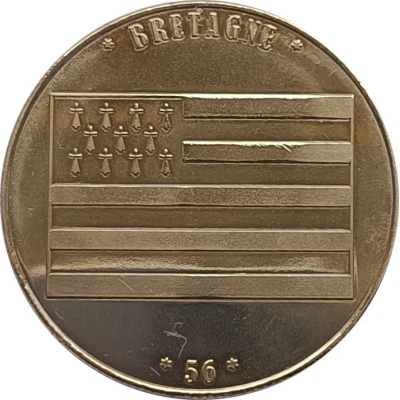


© DHAINAUT.M (CC0)
Tourist token - Atelier des Trésors - Bretagne - Saint-Malo cité corsaire ND
| Zamak | 13.29 g | 33 mm |
| Location | France |
|---|---|
| Issuing entity | Atelier des Trésors |
| Type | Medals › Souvenir medallions |
| Composition | Zamak |
| Weight | 13.29 g |
| Diameter | 33 mm |
| Thickness | 2 mm |
| Shape | Round |
| Technique | Milled |
| Orientation | Medal alignment ↑↑ |
| Updated | 2024-11-12 |
| Numista | N#319016 |
|---|---|
| Rarity index | 94% |
Reverse
Representation of a corsair
Script: Latin
Lettering:
Robert SURCOUF - Cité corsaire
Jacques CARTIER - Cité corsaire
Edge
Reeded
Comment
(1591) Gules a portcullis Or, ensigned by an ermine proper, lampassed sable, collared and buckled Or, cravatée with an ermine scarf fluttering over its back. https://armorialdefrance.fr/page_blason.php?ville=8205It was with the discovery of the Americas and the development of trade with the Indies (the first slave ship was fitted out in Saint-Malo in 1669) that Saint-Malo took off economically and became considerably bolder. Shipowners became more numerous, and some of the city's most famous figures of the period made a name for themselves - a name that peaked with the South Sea trade, which brought silver from the Peruvian mines back to Europe. Jacques Cartier discovered and explored Canada, and privateers, such as Duguay-Trouin and later Surcouf, harassed enemy merchant and military navies. https://fr.wikipedia.org/wiki/Saint-Malo



